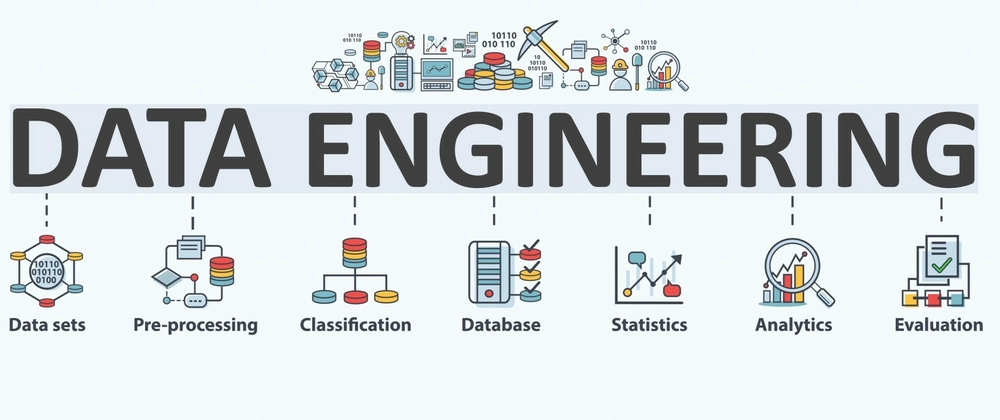Introduction
Data Engineering is one of the most important roles in a company today. It's not just about data; it's about using it to make better decisions and improve processes. Data Engineers are responsible for developing systems that analyze large amounts of information and help businesses make better decisions by mining huge datasets.
What is Data Engineering?
Data engineering is a computer science field that focuses on designing, developing, and maintaining data-driven applications. The data engineering process is a set of activities used to extract, transform and load data into a data store.
Data engineers are responsible for building large-scale enterprise applications such as those found in the cloud. Their job involves designing systems that ingest massive amounts of raw information from multiple sources (e.g., streaming logs) into relational databases so that it can be analyzed later by business analysts or decision makers who need access to this information at any time during their workday - which could mean anything from simple reporting functions like daily sales reports or monthly profit margins up through complex trading strategies based on real-time market conditions.
Skills that a data engineer needs
In this section, you will learn the skills a Data Engineer needs to succeed.
1.SQL
SQL is the foundational skill set for data engineers. Unless you know SQL, you can't manage an RDBMS (relational database management system). To accomplish this, you will need to go through a lengthy set of queries. Learning SQL is more than just memorizing a query. You must understand how to run efficient searches.
2.Coding
You must develop your programming skills to connect your database and work with various online, mobile, desktop, and IoT applications. Learn an enterprise language such as Java or C# for this reason. The former is valuable in open source tech stacks, whereas the latter is helpful for data engineering in a Microsoft-based stack. However, Python and R are the most important. High Python knowledge is helpful in a wide range of data-related processes.
3.Data Warehousing
Learning how to design and use a data warehouse is necessary. Data warehousing enables data engineers to aggregate unstructured data from various sources. It is then compared and evaluated to increase the efficiency of corporate operations.
4.Data Architecture
Data engineers must be knowledgeable about designing complicated database systems for corporations. It is related to operations dealing with data in motion, data at rest, and the interaction between data-dependent processes and applications.
5.Cloud Computing
Data engineers must be efficient in cloud computing as it increases the company's flexibility by allowing it to access its data and applications whenever and wherever it is needed.
What Tasks Does a Data Engineer perform?
A data engineer is a person who can take all of the raw information coming from your company and transform it into a usable format. This can range from creating custom databases, visualizing data in real-time with dashboards and reports, or even building machine learning models that use this basic information to predict future events.
The most common tasks for a data engineer are:
- Creating custom database schemas (e.g., PostgreSQL)
- Developing ETL pipelines using Python or Java (e.g., Kafka Streams) and other tools such as Spark SQL or Hadoop MapReduce
- Acquire datasets that are relevant to your business.
- Create algorithms to convert data into usable, actionable information.
- Create, test, and update database pipeline architectures.
- Make new data validation and data analysis tools.
- Ensure that data governance and security policies are followed.
Conclusion
Data engineering is a hot job. It's a new role, and it's cross-functional. A data engineer must be able to work with programmers and analysts to solve problems within the organization's data infrastructure.
As a data engineer, you must know SQL and Python, as well as the different types of cloud computing. You also need to understand Big Data because it will help your career grow in the future.



Top comments (0)